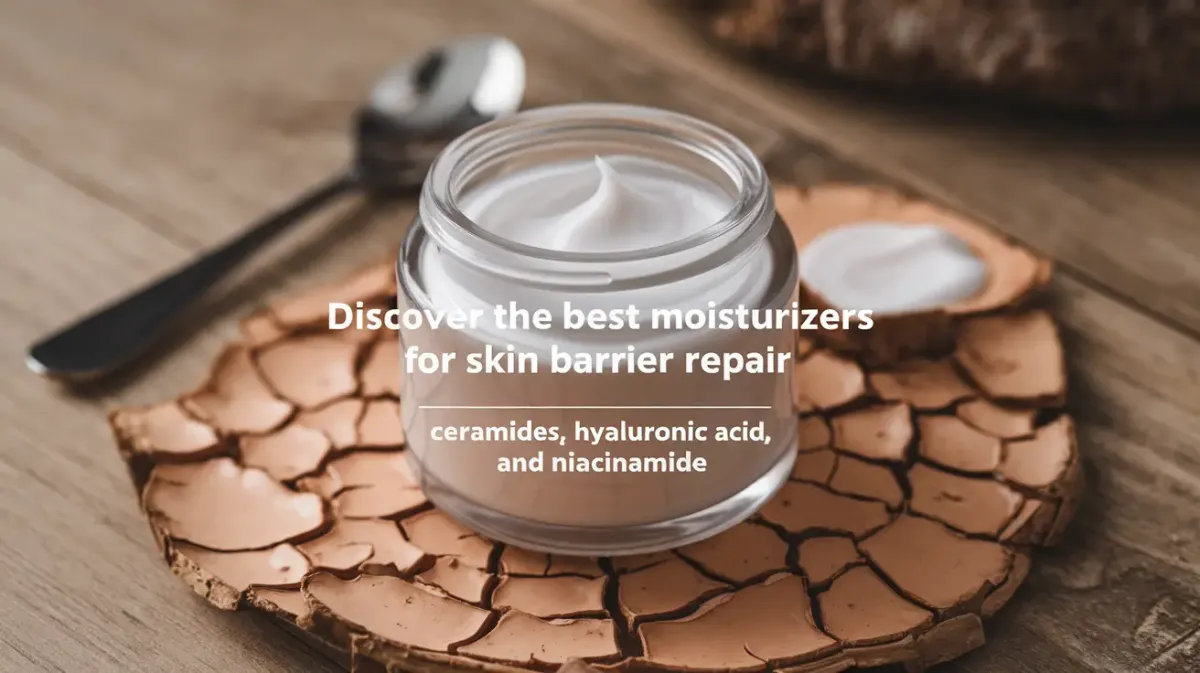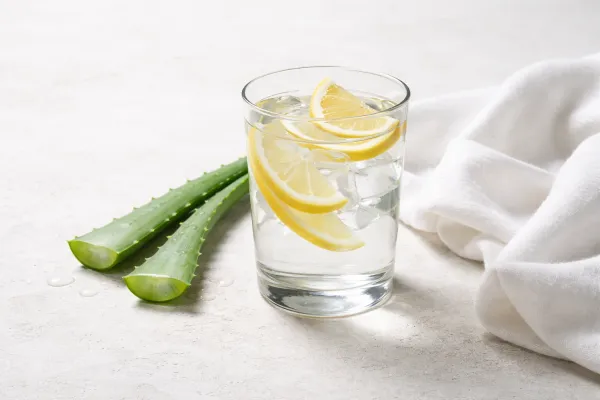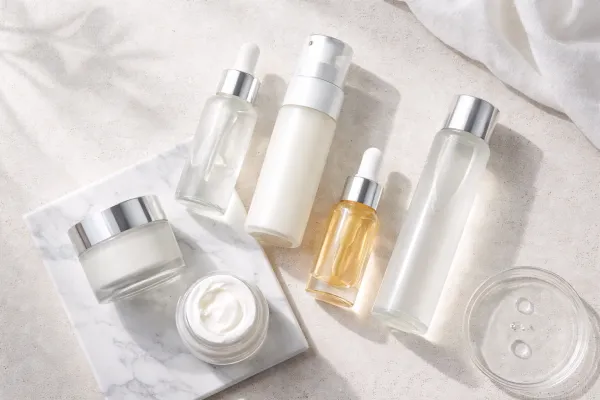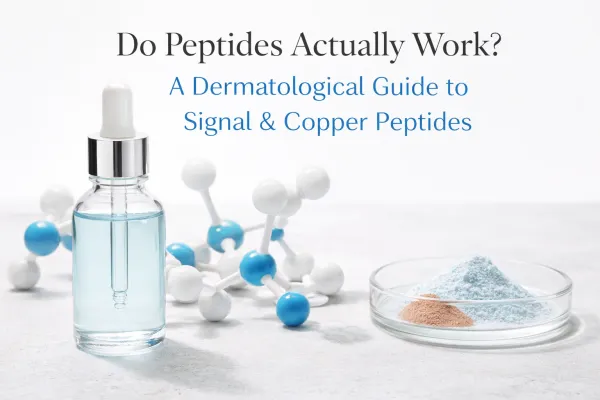The Best Moisturizers for Skin Barrier Repair
Discover the best moisturizers for skin barrier repair. Learn about key ingredients like ceramides, hyaluronic acid, and niacinamide for a healthy, radiant complexion.

Ever felt like your skin is constantly throwing a tantrum? Redness, dryness, irritation – it's like your face is staging a mini-rebellion. Chances are, your skin barrier might be compromised.
Think of your skin barrier as the bodyguard of your face, protecting it from the harsh outside world. When it’s damaged, it's like leaving the front door wide open for all sorts of trouble.
That's where the best moisturizers for skin barrier repair come in, acting like a skilled repair crew, rebuilding and fortifying your skin's defenses. But with so many products out there, how do you choose the right one? Let's dive into what really works, and what's just hype.
Key Takeaways: Best Moisturizers for Skin Barrier Repair
- Key Ingredients: Look for ceramides, fatty acids, cholesterol, hyaluronic acid, and niacinamide. These are the building blocks for a healthy skin barrier.
- Ideal Ratio: A 1:1:1 ratio of ceramides, fatty acids, and cholesterol is crucial for effective repair.
- Multi-Tasking Products: Opt for moisturizers that not only hydrate but also protect against irritants.
- Lightweight Formulas: Choose non-greasy, lightweight moisturizers for daily use.
- Fragrance-Free: Select fragrance-free and hypoallergenic options to minimize irritation, especially if you have sensitive skin.
- Conditions Treated: Barrier repair moisturizers can help with eczema, psoriasis, dry skin, and hypersensitivity.
- Dermatologist Recommended: Products with the right lipid ratios and soothing ingredients are often recommended by dermatologists.
The Science Behind Skin Barrier Repair
Before we jump into products, let's understand what we're actually fixing. Your skin barrier, also known as the stratum corneum, is the outermost layer of your skin. It’s made up of skin cells and lipids (fats) like ceramides, fatty acids, and cholesterol. Think of it like a brick wall: the skin cells are the bricks, and the lipids are the mortar holding everything together. When this barrier is damaged, it can lead to moisture loss, inflammation, and increased sensitivity.

That’s why using the best moisturizers for skin barrier repair isn't just about hydration; it's about rebuilding that crucial protective wall. It’s like fixing a leaky roof before the whole house gets flooded.
I've seen countless clients come in with skin issues that were simply a result of a damaged barrier, and the right moisturizer was the key to turning things around. Understanding this basic principle is the first step to achieving healthy, resilient skin.
- The skin barrier is the outermost layer of your skin.
- It's composed of skin cells and lipids (ceramides, fatty acids, cholesterol).
- A damaged barrier leads to moisture loss, inflammation, and sensitivity.
- Repairing the barrier is essential for healthy skin.
Learn more about the skin barrier.
Ceramides: The Cornerstone of Barrier Repair
If your skin barrier is a brick wall, then ceramides are the most important bricks. These lipids make up about 50% of the skin barrier's composition, and they're crucial for maintaining its integrity.
When your skin is lacking ceramides, it's like having a wall with missing bricks – it's weak and vulnerable. The best moisturizers for skin barrier repair are packed with ceramides, helping to replenish what’s lost and strengthen the barrier.
Products like Dr. Jart+ Ceramidin Skin Barrier Moisturizing Cream are specifically formulated with multiple types of ceramides to provide comprehensive repair. I've personally seen how quickly skin can improve when ceramides are introduced into a routine, especially for those with chronic dryness.
It's not just about slapping on any moisturizer; it's about choosing one with the right ingredients, and ceramides are non-negotiable for barrier repair.
- Ceramides are essential lipids that make up 50% of the skin barrier.
- They help maintain the skin barrier's integrity.
- Ceramide-rich moisturizers replenish lost ceramides.
- Look for products with multiple types of ceramides for comprehensive repair.
Discover the power of ceramides for skin health.
The Importance of Fatty Acids and Cholesterol
While ceramides are crucial, they aren't the whole story. For a truly effective barrier repair, you need a balanced trio: ceramides, fatty acids, and cholesterol. Think of these three as the perfect team, each playing a vital role in rebuilding and maintaining the skin barrier.

A 1:1:1 ratio of these lipids is often recommended, and using the wrong ratio can actually do more harm than good. It's like trying to build a house with the wrong proportions of cement, sand, and gravel – it just won't hold up.
The best moisturizers for skin barrier repair understand this balance and incorporate all three in the right proportions. This is where the expertise of a formulator really shines. I've seen firsthand how crucial this balance is; using a moisturizer with only ceramides, for example, might not be enough if the fatty acids and cholesterol aren't there to support them.
| Lipid | Role in Skin Barrier |
|---|---|
| Ceramides | Provide structural integrity |
| Fatty Acids | Help maintain the barrier's fluidity |
| Cholesterol | Essential for barrier function and permeability |
- A balanced ratio of ceramides, fatty acids, and cholesterol is essential.
- The ideal ratio is often 1:1:1.
- Using the wrong ratio can hinder barrier repair.
- Look for moisturizers that contain all three lipids.
Explore the best ingredients for skin barrier repair.
Hyaluronic Acid: The Moisture Magnet
While lipids are busy rebuilding the barrier, hyaluronic acid (HA) steps in to ensure your skin is properly hydrated. HA is a humectant, meaning it attracts and holds onto water, acting like a moisture magnet for your skin.
It can hold up to 1000 times its weight in water, making it a powerhouse ingredient for hydration. The best moisturizers for skin barrier repair often combine HA with ceramides and other lipids to provide both barrier repair and deep hydration.
Products like the Barrier Repair Moisturizer by Blissful Beauty and Molekulaire's Barrier Repair Moisturizer are great examples of this. I often tell my clients that HA is like the water truck on a construction site, ensuring everything stays hydrated while the building is going up. It’s not just about fixing the barrier; it's about keeping it hydrated and healthy.
- Hyaluronic acid is a humectant that attracts and holds water.
- It provides deep hydration to the skin.
- HA is often combined with ceramides and lipids for optimal results.
- Look for moisturizers that include HA for added hydration.
Dive deeper into the benefits of hyaluronic acid.
Niacinamide: The Multi-Tasking Marvel
Niacinamide, a form of vitamin B3, is a true multi-tasker in the skincare world. Not only does it help repair the skin barrier, but it also soothes inflammation, balances the skin's microbiome, and even helps with ceramide production. It's like the Swiss Army knife of skincare ingredients.
The best moisturizers for skin barrier repair often include niacinamide for its many benefits. It’s particularly effective when used in serums or moisturizers that stay on the skin for an extended period. I've seen clients with redness and sensitivity experience significant improvements with niacinamide.
It’s not just about repairing the barrier; it's about improving overall skin health. Think of niacinamide as the project manager, overseeing all the different aspects of skin repair and ensuring everything runs smoothly.
- Niacinamide is a multi-tasking ingredient that helps repair the skin barrier.
- It soothes inflammation and balances the skin microbiome.
- Niacinamide promotes ceramide production.
- It is beneficial in serums and moisturizers that remain on the skin.
Explore more about the benefits of niacinamide.
Soothing Ingredients: Calming the Skin
When your skin barrier is damaged, it's often inflamed and irritated. That's where soothing ingredients come in, acting like a gentle balm to calm and protect the skin. Ingredients like colloidal oatmeal, beta-glucan, and plant oils are particularly effective in repairing and protecting the skin barrier, especially for sensitive or dry skin.
The best moisturizers for skin barrier repair often include these ingredients to provide relief and support the healing process. Products like Kiehl's Ultra Facial Advanced Repair Barrier Cream and Aquaphor Healing Ointment are great examples of this.
I always tell my clients that soothing ingredients are like the comfort blankets for your skin, providing relief and support while the barrier is being repaired. It’s not just about fixing the problem; it's about making the process as comfortable as possible.
- Soothing ingredients like colloidal oatmeal and beta-glucan calm inflammation.
- Plant oils provide gentle protection and nourishment.
- These ingredients are especially beneficial for sensitive or dry skin.
- Look for moisturizers that include soothing ingredients for added comfort.
Learn more about skincare for sensitive skin.
Effective Formulations: What to Look For
It's not just about the ingredients; it's also about how they're formulated. The best moisturizers for skin barrier repair are often multi-tasking, lightweight, and fragrance-free. Multi-tasking products like Aquaphor Healing Ointment offer protection for dry skin, external irritants, and minor cuts. Lightweight and non-greasy moisturizers, such as the Barrier Repair Moisturizer by Blissful Beauty and Molekulaire's Barrier Repair Moisturizer, are ideal for daily use.
Fragrance-free and hypoallergenic products, like Kiehl's Ultra Facial Advanced Repair Barrier Cream, are essential for sensitive skin. I always advise my clients to pay attention to the texture and feel of a product. A heavy, greasy moisturizer might not be the best choice for daily wear, especially if you have oily or combination skin. It’s about finding the right balance between effectiveness and comfort.
| Formulation Feature | Benefit |
|---|---|
| Multi-Tasking | Provides protection and hydration |
| Lightweight & Non-Greasy | Suitable for daily use and all skin types |
| Fragrance-Free & Hypoallergenic | Minimizes irritation, ideal for sensitive skin |
- Multi-tasking products offer protection and hydration.
- Lightweight and non-greasy moisturizers are ideal for daily use.
- Fragrance-free and hypoallergenic options minimize irritation.
- Choose formulations that suit your skin type and needs.
Learn how to choose the right moisturizer for your skin.
Conditions Treated by Barrier Repair Moisturizers
Barrier repair moisturizers aren't just for general dryness; they can be incredibly effective in treating a range of skin conditions. Eczema, psoriasis, dry skin, rough skin, keratosis pilaris, and hypersensitive skin can all benefit from these specialized formulations.
Products rich in ceramides and fatty acids help repair the compromised skin barrier in eczema, while soothing ingredients like colloidal oatmeal and beta-glucan can calm and repair the skin in psoriasis. Hydrating ingredients such as hyaluronic acid and glycerin provide long-lasting moisture for dry skin, and balanced lipid formulations smooth and soften rough skin and keratosis pilaris.
The best moisturizers for skin barrier repair are designed to address these specific issues. I've seen clients with chronic skin conditions experience significant relief and improvement by incorporating the right barrier repair moisturizer into their routine. It's not a one-size-fits-all solution, but it's a crucial step in managing and improving these conditions.
- Barrier repair moisturizers are effective for eczema and psoriasis.
- They provide long-lasting moisture for dry skin.
- They can smooth and soften rough skin and keratosis pilaris.
- Fragrance-free options are ideal for hypersensitive skin.
Recognize the signs of a damaged skin barrier.
Dermatologist Recommendations: Expert Advice
When it comes to skin barrier repair, dermatologists are the experts. They often recommend products that contain the correct ratio of lipids (ceramides, fatty acids, and cholesterol) and other beneficial ingredients. Products like EpiCeram Cream and Medature PSL Repair Cream are often prescribed for their effectiveness in restoring the skin barrier.
The best moisturizers for skin barrier repair are those that have been formulated with the guidance of dermatological science. I always encourage my clients to consult with a dermatologist, especially if they have persistent skin issues. It’s not about blindly following trends; it’s about making informed decisions based on expert advice. Think of dermatologists as the architects of your skin, guiding you in building the strongest and healthiest barrier possible.
- Dermatologists recommend products with the correct lipid ratios.
- They often prescribe specific creams for barrier repair.
- Expert advice is crucial for persistent skin issues.
- Look for products that are dermatologist-recommended.
Learn how to avoid damaging your skin barrier.
Conclusion: The Path to Healthy Skin
Choosing the best moisturizers for skin barrier repair is a crucial step in achieving healthy, resilient skin. It's not just about hydration; it's about rebuilding and fortifying your skin's natural defenses. By understanding the key ingredients, ideal ratios, and effective formulations, you can make informed decisions that will truly benefit your skin.
Remember, it's not about quick fixes but about consistent care and the right products. If you're still unsure, consulting with a dermatologist can provide personalized guidance. Your skin is a reflection of your overall health, and taking care of it is an investment in your well-being. It’s like tending to a garden; with the right care and attention, it will flourish.
What if you have oily skin? Can you still use a barrier repair moisturizer? Absolutely!
Look for lightweight, non-comedogenic options. What if you have acne? Barrier repair is still important, and you can use products that also target acne. What if you have sensitive skin? Always opt for fragrance-free and hypoallergenic products.
Frequently Asked Questions: The Best Moisturizers for Skin Barrier Repair
What is the Skin Barrier, and Why is it Important?
Your skin barrier, also known as the stratum corneum, is the outermost layer of your skin. It's like the bouncer at the VIP club of your face, keeping the good stuff (moisture) in and the bad stuff (irritants, pollutants, pathogens) out.
It's composed of corneocytes (skin cells) held together by a lipid matrix made of ceramides, cholesterol, and fatty acids. When this barrier is compromised, you get dryness, redness, inflammation, and a host of other skin problems.
How Do Ceramides Work to Repair the Skin Barrier?
Ceramides are like the mortar that holds the bricks (skin cells) of your skin barrier together. They make up about 50% of the lipid matrix and are crucial for maintaining the barrier's structural integrity.
When your skin is low on ceramides, it's like having a wall with missing mortar – weak and prone to damage. Ceramide-containing moisturizers replenish these essential lipids, helping to repair and strengthen the barrier.
What is the Significance of the 1:1:1 Ratio of Ceramides, Cholesterol, and Fatty Acids?
The 1:1:1 ratio of ceramides, cholesterol, and fatty acids is considered the golden ratio for optimal skin barrier repair. This specific ratio mimics the natural composition of the skin's lipid matrix, allowing for effective restoration of barrier function. Using a moisturizer with this ratio is like rebuilding a wall with the exact materials it was originally made of, ensuring strength and stability.
How Does Hyaluronic Acid Help with Skin Barrier Repair?
Hyaluronic acid is a humectant, meaning it attracts and retains moisture like a sponge. It can hold up to 1000 times its weight in water. While it doesn't directly repair the barrier structure like ceramides, it provides essential hydration, creating an optimal environment for barrier repair. It's like watering the construction site while the wall is being built.
What Makes Niacinamide a Powerhouse Ingredient for Skin Barrier Repair?
Niacinamide, a form of vitamin B3, is a multi-tasking marvel. It boosts the skin's natural production of ceramides, strengthens the barrier, reduces inflammation, and even helps regulate oil production. It's like the foreman on the construction site, making sure everything runs smoothly and efficiently.
Why are Fragrance-Free and Hypoallergenic Moisturizers Important for Sensitive Skin?
Fragrances and other potential allergens can irritate and further compromise a damaged skin barrier, especially in those with sensitive skin or conditions like eczema and rosacea. Fragrance-free and hypoallergenic products minimize the risk of irritation, allowing the skin to focus on repair.
What Skin Conditions Can Benefit from Barrier Repair Moisturizers?
Barrier repair moisturizers are beneficial for a wide range of skin conditions, including:
- Eczema (Atopic Dermatitis)
- Psoriasis
- Dry Skin (Xerosis)
- Contact Dermatitis
- Rosacea
- Sensitive Skin
- Keratosis Pilaris
These conditions are often associated with a compromised skin barrier. Barrier repair moisturizers help restore the barrier's function, reducing symptoms and improving overall skin health.
Can Oily or Acne-Prone Skin Benefit from Barrier Repair Moisturizers?
Absolutely! Even oily and acne-prone skin can have a damaged skin barrier. In fact, a compromised barrier can contribute to excess oil production and acne. Lightweight, non-comedogenic (won't clog pores), and oil-free barrier repair moisturizers can help restore balance without exacerbating oiliness or breakouts.
How Long Does it Take to See Results from a Barrier Repair Moisturizer?
Results can vary depending on the severity of the barrier damage and the specific product used. Some people may notice improvements within days, while others may take several weeks. Consistency is key. It's like rebuilding a house; it takes time and effort to see the final result. You should use your product at least twice a day.
Are there any Lifestyle Changes that Can Support Skin Barrier Repair?
Yes! Besides using the right moisturizer, several lifestyle factors can support barrier repair:
- Gentle Cleansing: Avoid harsh soaps and hot water.
- Sun Protection: Use a broad-spectrum sunscreen with at least SPF 30 daily.
- Healthy Diet: Eat a balanced diet rich in omega-3 fatty acids.
- Hydration: Drink plenty of water.
- Humidifier: Use a humidifier, especially in dry climates.
- Avoid Irritants: Minimize exposure to known irritants and allergens.
- Stress Management: Practice stress-reducing techniques like yoga or meditation.
Further Resources
- Harper's Bazaar: Best Barrier Creams
- Renee Rouleau: Best Skin Barrier Repair Products
- Skin Type Solutions: Skin Barrier Repair Moisturizers




